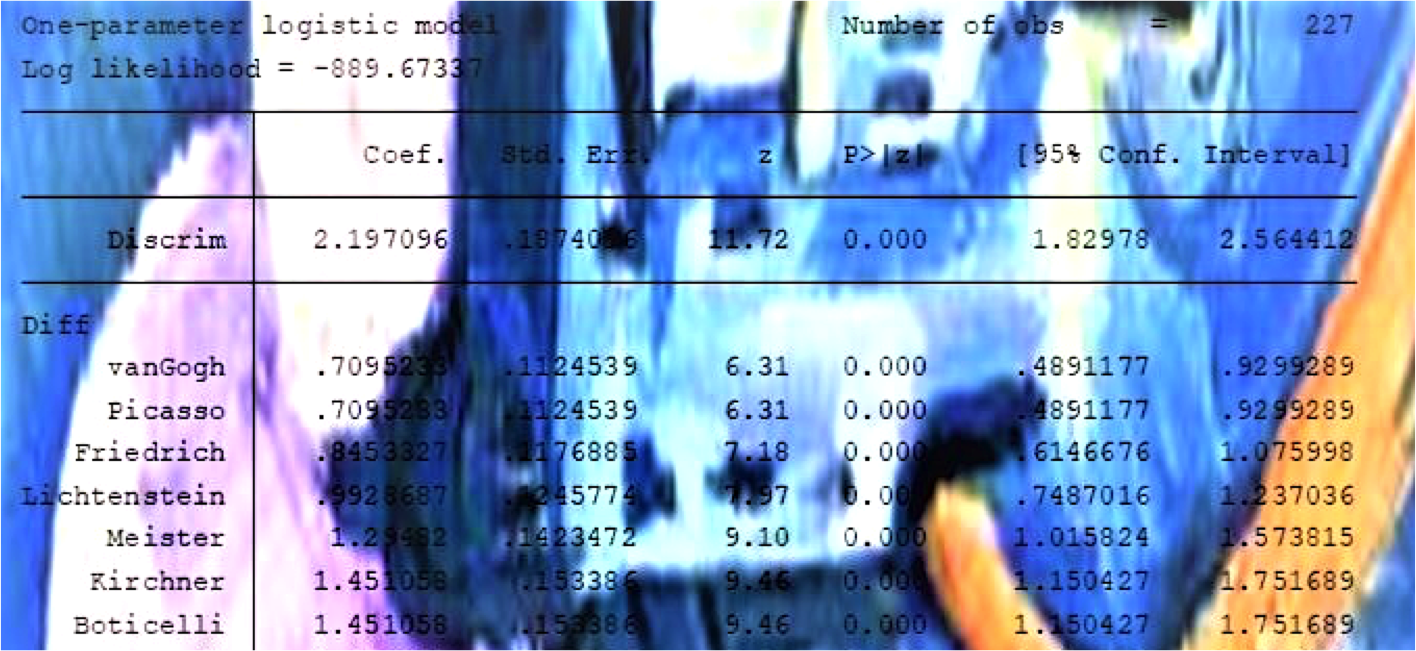Annalena Röser
The social stratification of culinary practices. Empirical analyses of restaurant visits, do-mestic cooking habits, and knowledge of national cuisines in Germany
Eating is a universal necessity – and simultaneously a cultural activity in which social affiliations and differences are expressed. Culinary habits reflect not only individual preferences but also group affiliations, resource endowments, and efforts at distinction. As part of everyday life and social and cultural participation, culinary practices thus represent a promising field of investigation for the emergence and reproduction of social inequalities.
The dissertation examines how visits to different types of restaurants, domestic cooking habits, and knowledge of national cuisines in Germany are socially structured. The focus is on the influence of resources – such as income and cultural capital –, the culinary socialization during childhood, as well as structural and personal constraints, such as the gastronomic infrastructure at the place of residence or adherence to certain dietary patterns. Furthermore, the mechanisms behind possible resource effects are examined, with exemplary questions including: Which role does the reputation of restaurants in the social environment play in the choice of gastronomic offerings, and does this differ by social group affiliation? Is the consumption of exotic cuisines driven by a genuine interest in foreign countries or rather a need for distinction among high-status groups? And is the culinary behaviour of economically deprived individuals exclusively shaped by necessity or also influenced by moral and ecological considerations?
Different dimensions of culinary practices are distinguished for the analysis: vertical distinctions of gastronomic establishments and dishes – such as price, quality, and complexity – and horizontal differentiations and classifications of national cuisines. Additionally, dietary orientations, which include moral, health-related, or cultural-religious motives and which cut across these two dimensions, are considered. The analysis is based on data from the panel study "Cultural Education and Cultural Participation in Germany III", which is representative for the German-speaking adult population in Germany. In the third wave of this panel study, specifically devel-oped questions on culinary practices and interests were included.
Doctoral candidate: Annalena Röser, M.A.
Project supervision: Prof. Dr. Gunnar Otte
Project duration: 2024 - 2026
Funding: Federal Ministry for Education, Family Affairs, Senior Citizens, Women and Youth (BMBFSFJ)
Joschka Baum
The social stratification of culinary practices. Empirical analyses of restaurant visits, do-mestic cooking habits, and knowledge of national cuisines in Germany
The social structuration of taste in music, art, and film is a well-established area of research in sociology. However, there is only scant knowledge on the question of how taste in the recently emerged social field of video gaming is socially determined. The dissertation intends to fill this gap. It is based on the idea that video games are hybrid goods, which comprise ludic, stylistic, and narrative elements. Research on video game tastes should consider all these aspects. To achieve this, two data sources are combined. On the one hand, user-generated tags of an online gaming platform are used to explore symbolic distinctions within the field of video gaming and to describe profile building of game developers and publishers. These data are linked with individual-level data on gaming preferences and practices from the population survey "Cultural Education and Cultural Participation in Germany II". Combining these data, the dissertation aims at explaining video game consumption and reception.
Doctoral candidate: Joschka Baum, M.A.
Project supervision: Prof. Dr. Gunnar Otte
Project duration: 2020 - 2023
Funding: Federal Ministry of Education and Science (BMBF)
Holger Lübbe
How can cultural education be measured? Development and test of a measurement instrument for cultural competencies in the population
According to Bourdieu’s theory of art perception, artworks are complex entities whose understanding requires a process of decoding. People who lack the necessary cultural competence can only partially grasp the meaning of art and often remain distant from it. Since cultural capital is transmitted according to social status and, in turn, affects educational success, cultural reproduction constitutes a central mechanism of status reproduction. While cultural consumption and taste have been widely studied, there are so far only few quantitative analyses of art reception. Education and objectified cultural capital have proven to be strong predictors. However, an appropriate operationalization of incorporated cultural capital that would make aesthetic competence empirically measurable is still missing. Accordingly, it has proven difficult to demonstrate the actual effect of Bourdieu’s argument in comparison to alternative explanations, such as distinction. Overall, the diagnostics of cultural competence are still in their early stages: PISA and the educational standards focus on the core subjects, and there remain doubts about the measurability of cultural education.
The doctoral project addresses this point. Based on competence diagnostics, model-guided competence tests are developed for two areas – visual arts and music – within the framework of a population survey. The model includes four dimensions of receptive cultural competence, three of which have been operationalized and empirically validated: 1. Knowledge of art and music history; 2. knowledge of analysis and production; 3. interpretation and transfer (visual arts) or notation (music). The dichotomous Rasch model forms the basis for scaling and model testing. The results show that measuring cultural competencies in standardized population surveys is challenging but feasible. The scales meet high psychometric standards and explain differences in cultural participation significantly better than crude proxies such as formal educational level. Thus, the project provides not only an empirically grounded operationalization of incorporated cultural capital, but also a tool for differentiated impact analysis in the context of cultural education. The findings open up new perspectives for empirical cultural sociology, for educational and cultural monitoring, and for the study of transfer effects.
Doctoral candidate: Holger Lübbe, M.A.
Project supervision: Prof. Dr. Gunnar Otte
Project duration: 2016 - 2023
Funding: Federal Ministry of Education and Science (BMBF)
Key publications:
Lübbe, Holger (2024): Wie lässt sich kulturelle Bildung messen? Entwicklung und Prüfung eines Messinstruments für kulturelle Kompetenzen in der Bevölkerung. Mainz: Johannes Gutenberg-Universität Mainz (Dissertation).
Katharina Kunißen
The Independent Variable Problem. Welfare Stateness as an Explanatory Concept.
When examining the extent to which welfare state policies are responsible for different outcomes for individuals in different countries, an empirical operationalisation of the welfare state or of specific elements of social policy-making is required. Substantial problems arise concerning prevalent operationalisation practices. Essentially, these problems all relate to one key issue: While there is a great number of contributions addressing the measurement of differences between welfare states per se and as a dependent variable, there is a distinct lack of feasible recommendations when it comes to the operationalisation of welfare stateness as an independent variable. In light of the great number of studies assuming an effect of welfare policies on social phenomena, the lack of standardised proceedings surprises. Instead of following a comparable and somewhat formalised approach, scholars implement very different operationalisations.
To this date, there is no systematic test of how such varying proceedings may affect results and their comparability. Similarly, a detailed conceptual discussion on which features of the welfare state are relevant for the explanation of specific outcomes is missing. This contribution fills both gaps. First, it unravels the pitfalls of existing approaches and demonstrates how strongly empirical results vary depending on the chosen operationalisation. Second, it proposes a way to standardise proceedings by deducing four distinct conceptualisations of welfare stateness as independent variables: The Responsive Welfare State, the Enabling Welfare State, the Normative Welfare State and the Assessed Welfare State. As a result, the operational choices are limited in a theoretically meaningful way to indicators that correspond to these conceptualisations. In an empirical test, the systematised concepts proved to be useful in overcoming the “independent variable problem”: they narrow down relevant facets of welfare stateness and their functions and thus serve as guidelines for the theoretical derivation of relevant analytical perspectives, their empirical operationalisation and the interpretation of results.
Doctoral candidate: Katharina Kunißen, M.A.
Project supervision: Prof. Dr. Gunnar Otte
Project duration: 2015 - 2021
Key Publications:
Kunißen, Katharina (2023): The Independent Variable Problem. Welfare Stateness as an Explanatory Concept. Wiesbaden: Springer VS. (Open Access: https://link.springer.com/book/10.1007/978-3-658-39422-6)
Kunißen, Katharina (2019): The Independent Variable Problem. Welfare Stateness as an Explanatory Concept. Mainz: Johannes Gutenberg-Universität Mainz (Dissertation).
Kunißen, Katharina (2019): From Dependent to Independent Variable: A Critical Assessment of Operationalisations of ‘Welfare Stateness’ as Macro-Level Indicators in Multilevel Analyses. Social Indicators Research 142 (2): 597-616. DOI: https://doi.org/10.1007/s11205-018-1930-3 → Full text (read only)
Mara Boehle
Causes and Changing Dynamics of Family Poverty in Germany, 1962-2009. A Theoretical and Empirical Analysis.
Families - in spite of the German constitution’s guarantee that they remain „under special protection of the government” - constituted a central risk group for poverty as far back as the 1970s. Since then the portion of low-income families has been rising almost continuously and has stabilized in the last few years on an above-average level. Even though the explanation of such processes falls among the central tasks of Sociology, systematic explanation attempts and empirical analyses of this phenomenon have been lacking. This dissertation project aims to systematically investigate the reasons for the increase of family poverty. This will be accomplished by using a theoretical and empirical multi-level model which recognizes the income poverty risk of families, i.e. households with children, as a function of household specific (micro) and time-dependent structural factors (macro).
Central factors on the macro level are the economic, household demographic and political-institutional changes since the 1970s such as increasing risks in the employment market, the quantitative increase of single parents, the growth of high-earning childless couple households and the political changes in benefits for families. The hypotheses of the project will be tested on the basis of German microcensus data which has been linked to macro level data.
Previous results of the study show that the growth in relative poverty of family households since the 1970s is due less to the existence of children per se, but rather attributed to the growth of the polarizing composition of familial and childless households since then. In addition, the growth in childless dual-income households has led to high income intensity becoming more important to avoid poverty. This, however, is especially rare in family households and has not increased over time either. Benefits deriving from family politics such as recently expanding child care in West Germany for under three-year-olds as well as child allowances proof to be efficient in social politics as they demonstrate a poverty-reducing effect for single parents who have constituted an ever-increasing area within the family sector as well as an increasingly central group at risk of poverty since the 1970s.
Doctoral candidate: Mara Boehle, M.A.
Project supervision: Prof. Dr. Christof Wolf (GESIS and Mannheim University) and Prof. Dr. Peter A. Berger (Rostock University)
Project duration: 2011 - 2015
Funding: German Research Foundation (Deutsche Forschungsgemeinschaft DFG)
Key Publications:
Boehle, Mara (2019): Armut von Familien im sozialen Wandel: Verbreitung, Struktur, Erklärungen. Wiesbaden: Springer VS
Boehle, Mara (2015): Armutsmessung mit dem Mikrozensus: Methodische Aspekte und Umsetzung für Querschnitts- und Trendanalysen. GESIS Papers 2015/16. Köln: GESIS – Leibniz-Institut für Sozialwissenschaften.
→ Link
Boehle, Mara und Wolfgang Voges (2013): Die Entwicklung familialer Armut im Kontext sozialstrukturellen Wandels, 1962 bis 2009. ZeS-Report Vol. 18, No. 2. Bremen: Zentrum für Sozialpolitik, Universität Bremen.
Link
Boehle, Mara and Christof Wolf (2012): Understanding time as socio-historical context: Analyzing social change within the framework of multilevel analysis. GK SOCLIFE Working Paper Series 14/2012. Köln: Research Training Group, University of Cologne.
Link




